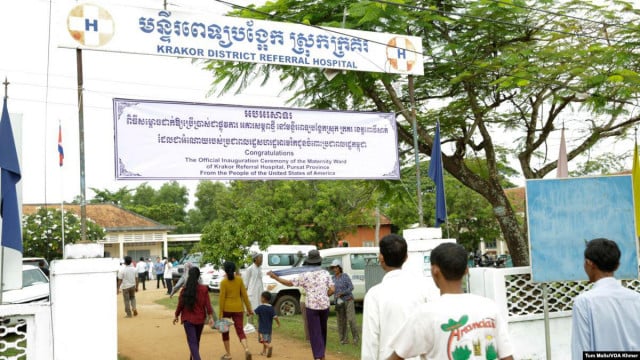Researchers Identify one of Cambodians’ Biggest Cause of Debt: Medical Care

- Jazmyn Himel
- November 6, 2019 9:24 AM
PHNOM PENH--A study conducted in 5,000 Cambodia households in both rural and urban regions of the country has uncovered what researchers described as the “medical poverty trap.”
Entitled “Exploring the determinant of distress health financing in Cambodia,” the study found that one third of the households surveyed had health-care related debts, and 78% of the households were still indebted from loans taken over 12 months before the survey.
“Illness and indebtedness can be mutually reinforcing in a vicious cycle” as the need for more treatments due to more illness “requires more money and leads to further borrowing and stress,” the researchers said.
Conducted by a group of researchers with Ir Por of Cambodia’s National Institute of Public Health as the senior researcher, the study involved researchers and was done with support from Great Britain, Germany and Australia.
Researchers found that the “ability to borrow from relatives in Cambodia has drastically decreased over time.” This has taken away what used to be the main source of loans without interest for most individuals in the country.
At the same time, borrowing from formal institutions such as banks has increased.
“The average debt due to healthcare borrowing was $125,” the report read. “For those who paid interest on their loan, the average debt rose to $200.” Those with poor health were more likely to agree to short-term high interest loans. Also, catastrophic health expenditure was more likely among poorer and larger households.
While Cambodians may turn to either public or private medical services in the country, the study showed that 64 percent of the people tended to turn to private service providers with only 7.5 percent going to public facilities.
And this, even though the private health services are, the researchers said, “poorly regulated” and those in its care “run the risk of dealing with poorly qualified providers” who often provide below satisfactory care and overcharge for unnecessary procedures.
Still, while this study shows that a large number of people would rather use private medical care, a 2019 joint report of the Asian Development Bank and the Organization of Economic Co-operation and Development stated that Cambodians had the highest citizen satisfaction—16 percent—with the healthcare system over the last 10 years than in all Southeast Asian countries. The report attributed this to “a series of health finance policies aimed at mitigating costs to improve access, particularly for vulnerable groups.”















